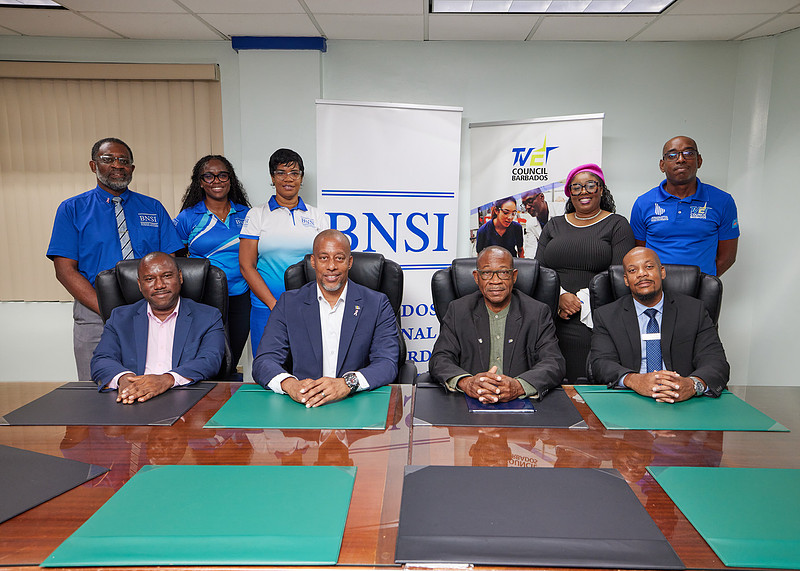In a significant step toward transforming Barbados’ workforce development framework, the Technical and Vocational Education and Training (TVET) Council and the Barbados National Standards Institution (BNSI) have inked a landmark Memorandum of Understanding (MOU). This agreement, signed at the BNSI headquarters, aims to formally recognize the skills of BNSI member employees while bolstering the island’s quality infrastructure. The collaboration seeks to bridge the gap between competence and quality, offering workers new avenues for formal certification through the TVET Council’s Prior Learning Assessment and Recognition (PLAR) programme. PLAR enables individuals to earn qualifications by validating skills acquired through work experience, informal training, or other non-traditional learning methods. Fabian Scott, acting deputy director of BNSI, emphasized that the MOU is fundamentally about people, ensuring that Barbadians’ skills—whether gained on the job or in the classroom—are recognized, certified, and aligned with international standards. Under the agreement, BNSI members and their employees will enjoy discounted access to the PLAR programme, which awards National and Caribbean Vocational Qualifications (NVQs and CVQs) based on both formal education and real-world experience. This initiative aligns with the Government of Barbados’ objective to reduce the number of uncertified workers and enhance national productivity. Hadyn Rhynd, director of BNSI, highlighted the partnership’s role in safeguarding competence and boosting the global competitiveness of Barbadian industries. The MOU also paves the way for deeper collaboration in joint promotions, training, and strategic workforce planning. Henderson Eastmond, Executive Director of the TVET Council, stressed that the partnership extends beyond certification, focusing on building industries, saving foreign exchange, and addressing workforce needs strategically. A key innovation under the MOU is the planned establishment of Sector Skills Councils, industry-led bodies tasked with identifying skills gaps and guiding the development of relevant training and standards. BNSI’s diverse membership base is expected to play a crucial role in this initiative, with sectors like the Creative Industries (film and animation) and Health and Wellness already in focus. Eastmond described the partnership as forward-looking, aimed at creating a future-ready workforce that is competent, confident, and globally recognized. The MOU takes immediate effect and will remain in force for three years, with potential for renewal, marking a major stride in aligning Barbados’ skills development with international best practices and economic resilience.
